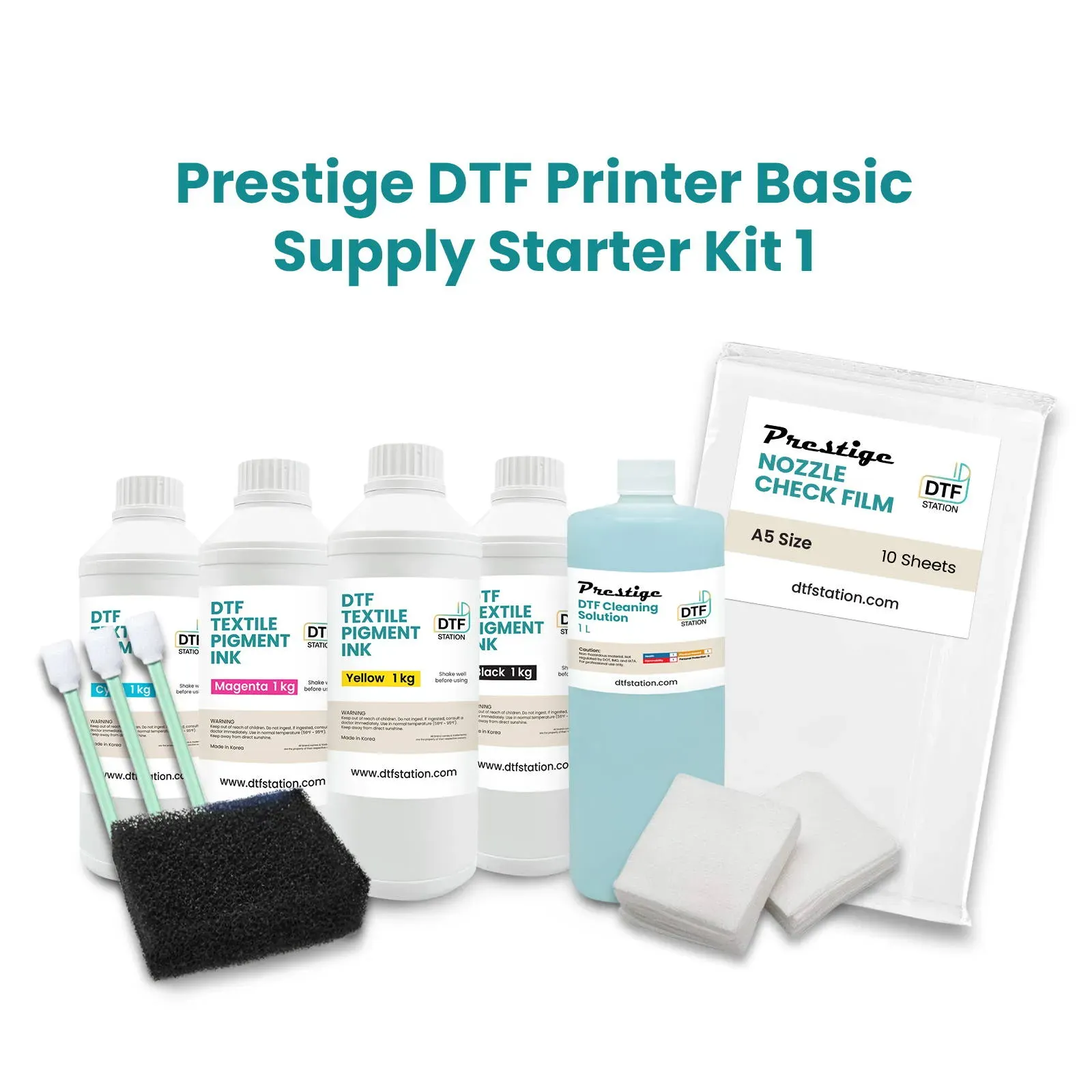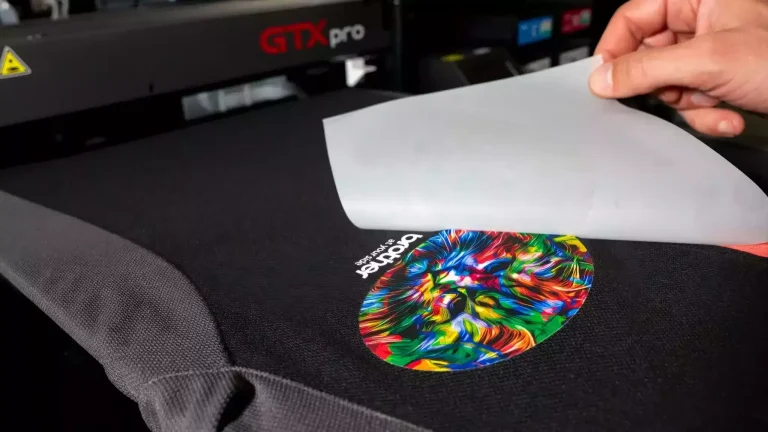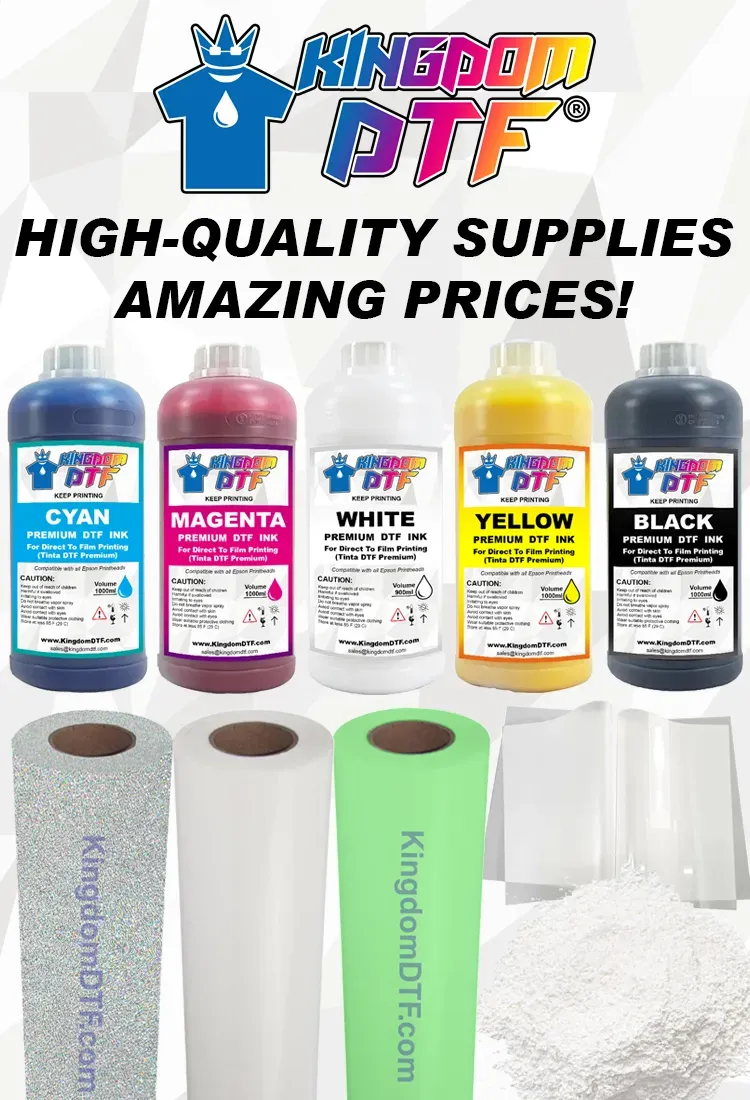DTF supplies are essential for anyone looking to master the art of Direct to Film (DTF) printing, a transformative technique that has become increasingly popular in the custom apparel industry. This innovative process allows for vibrant, durable prints on a variety of fabrics, making it a favorite among designers and hobbyists alike. To achieve stunning results, it’s crucial to have the right equipment and materials, including high-quality transfer films, efficient DTF printers, and reliable adhesive powders. Additionally, a heat press for DTF is indispensable, ensuring that your designs adhere flawlessly to garments. As the demand for customizations continues to rise, understanding and investing in the proper DTF supplies can elevate your printing efforts and set you apart in a competitive market.
When delving into the world of transfer printing, it is vital to familiarize oneself with the myriad resources that facilitate this process. Supplies tailored for direct-to-film printing play a critical role in ensuring the success of your creative projects. This includes specialized printing machines designed for optimal ink application, as well as high-quality films that guarantee excellent adhesion during the transfer. Then there are the essential adhesive powders that bind your designs to a variety of fabrics, resulting in professional-grade finishes. Lastly, consider the right heating equipment that is necessary for setting your prints, making sure your operations are both efficient and effective.
The Importance of DTF Printers in Your Studio
In the realm of DTF printing, the DTF printer stands as the cornerstone of your operation. Unlike traditional printers, these specialized machines are designed specifically to produce print on transfer films. This unique capability allows for rich colors and intricate details to be captured effectively. When selecting a DTF printer, it’s crucial to consider factors such as pigment ink compatibility and printing resolution. High-quality pigment inks not only ensure vibrant colors but also enhance the durability of prints, making them suitable for various fabric applications.
With brands like Epson and Brother leading the way, investing in a quality DTF printer can significantly influence the overall quality of your apparel. A printer that achieves a high DPI (dots per inch) is essential for delivering fine details that resonate with customers. Therefore, understanding the specifications and capabilities of different DTF printers will empower you to make informed decisions, ultimately enhancing your studio’s output and reputation in the market.
Choosing the Best Transfer Films for DTF Printing
Transfer films are vital to the DTF printing process as they directly impact the final product’s quality. The choice of transfer films can dictate how well your designs adhere to various fabrics, making quality paramount. High-quality PET films are preferred for their robust strength and ability to hold vibrant inks during the transfer process. Furthermore, these films come in various finishes such as matte and glossy, offering flexibility to meet different design aesthetics.
When selecting transfer films, consider the fabric types you plan to print on. Certain films are better suited for cotton, while others excel on polyester blends. Doing a test print can be beneficial to ensure that the film you choose complements your printer and achieves the desired finish. Utilizing the right transfer film will not only enhance the durability and appearance of your apparel but also improve customer satisfaction.
Essential Adhesive Powders for Successful Transfers
Adhesive powder is a critical ingredient in the DTF process, acting as the intermediary that binds the printed design to the fabric. This powder is applied over the wet ink on the transfer film before a heat press is applied. To ensure a successful transfer, it is important to choose high-quality hot-melt adhesive powder, which is available in various mesh sizes to suit different applications and fabric types. A fine mesh, for example, facilitates a smoother application for intricate designs.
Additionally, you want to prioritize adhesive powders specifically formulated for DTF printing. These powders provide strong adhesion and modify the properties of the ink to ensure lasting quality after washing. By understanding the different types of adhesive powders available and selecting the right one for your DTF projects, you can ensure that your designs maintain integrity and vibrancy even after prolonged use.
The Role of Heat Press Machines in DTF Printing
A high-quality heat press machine is indispensable in effectively transferring your designs from film to fabric in the DTF printing process. This equipment applies the necessary heat and pressure to ensure that the adhesive powder melts and bonds deeply with the fabric. When choosing a heat press, it’s crucial to consider its temperature capabilities, with a minimum of 320°F (160°C) being essential for effective curing. Additionally, the design of the heat press, whether clamshell or swing-away, can significantly affect your workspace efficiency.
Moreover, investing in a reliable heat press machine can mean the difference between a mediocre print and a professionally finished product. As you work to create custom apparel, the consistency of heat application provided by a top-of-the-line heat press can enhance your output quality. This investment not only saves time in production but also ensures that your finished products meet client expectations.
Maintaining Your DTF Printing Equipment
Regular maintenance of your DTF printing equipment is crucial for ensuring its longevity and consistent performance. This includes routine cleaning to prevent ink clogs and ensure smooth operation. Using cleaning solutions specifically formulated for your DTF printer will help maintain print quality while extending the lifespan of the hardware. Neglecting maintenance can lead to costly repairs and downtime, affecting your studio’s productivity.
Additionally, keeping your workspace organized and allowing for proper ventilation is important for maintaining an efficient studio environment. Incorporating a cleaning schedule into your workflow can help you stay on top of maintenance tasks, ensuring your DTF equipment is always ready to produce high-quality prints. This approach not only helps in preserving the life of your equipment but also enhances the overall effectiveness of your printing operations.
Utilizing Software and Design Tools for Quality Output
The backbone of successful DTF printing lies in the design and preparation of your artwork. Utilizing software tools such as Adobe Illustrator and CorelDRAW allows designers to craft visually stunning artwork tailored to DTF printing specifications. These tools offer advanced features that enable customization, precise adjustments, and preparation of print-ready files, ensuring that each design achieves the desired aesthetic when printed.
Moreover, some vendors offer specialized DTF software that streamlines the workflow from design to print. These programs can simplify settings adjustments for different materials and printing conditions, allowing you to optimize operations. By leveraging the right software solutions, you can enhance your creative capabilities and achieve remarkable output quality in your custom apparel printing projects.
Frequently Asked Questions
What are the essential DTF supplies required for a successful printing studio?
To set up a successful DTF printing studio, essential supplies include a DTF printer, transfer films, adhesive powder, and a heat press. Each of these components plays a vital role in producing high-quality prints on fabrics. Make sure to select high-quality materials to ensure vibrant colors and strong adhesion.
How do DTF printers differ from traditional printers in the printing process?
DTF printers specifically cater to the Direct to Film (DTF) printing method by transferring designs onto special films rather than directly onto fabrics. This unique process requires specialized pigment inks for vibrant colors and higher printing resolutions for detailed designs, differentiating them from traditional printers.
What types of transfer films are best for DTF printing?
The best transfer films for DTF printing are high-quality PET films that offer excellent adhesion when applied to fabrics. Depending on your project needs, you can choose from various finishes such as matte or glossy to achieve your desired look.
Why is adhesive powder important in the DTF printing process?
Adhesive powder is crucial in DTF printing as it ensures strong adhesion of printed designs to fabric. After printing, hot-melt adhesive powder is sprinkled over the wet ink on the transfer film, which helps the design bond effectively during heat transfer.
What features should I consider when selecting a heat press for DTF printing?
When selecting a heat press for DTF printing, look for features such as high-temperature capability (minimum 320°F or 160°C) for curing ink and adhesive properly. You also need to decide between clamshell or swing-away models based on your workspace and production preferences.
What cleaning supplies are recommended for maintaining a DTF printer?
To maintain a DTF printer effectively, it’s essential to use cleaning solutions that are compatible with your specific printer model. Regular cleaning helps prevent clogs, maintains print quality, and prolongs the printer’s lifespan.
| DTF Supply | Description |
|---|---|
| DTF Printers | Specialized printers for transferring designs onto film, critical for vibrant prints. |
| Transfer Films | High-quality PET films with various finishes for effective design transfer. |
| Adhesive Powder | Hot-melt powders that ensure strong adhesion when transferring designs. |
| Heat Press | Essential for applying heat and pressure to transfer designs onto fabric. |
| Cleaning Supplies | Specialty cleaning solutions to maintain printer functionality and print quality. |
| Software and Design Tools | Programs like Adobe Illustrator and specialized DTF software for design prep. |
| Protective Gear | PPE such as gloves and masks to ensure safety while handling inks and powders. |
Summary
DTF supplies are essential for any studio looking to leverage the innovative Direct to Film printing method. From specialized printers to high-quality transfer films, each component plays a vital role in creating stunning and vibrant prints. Understanding the necessity of adhesive powders, heat presses, and proper cleaning supplies can significantly enhance your printing workflow. Moreover, utilizing design software and ensuring safety with protective gear can set you up for success in the custom apparel industry. By investing wisely in DTF supplies, studios can not only improve their production efficiency but also elevate the quality of their finished products.






